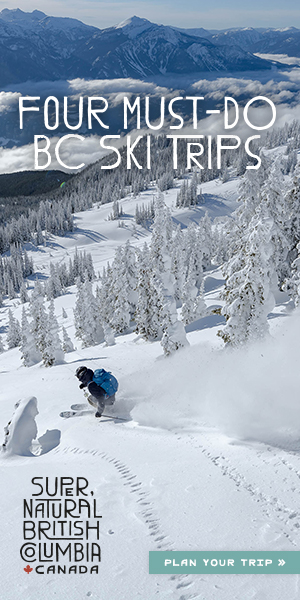Standing on the edge of couloir, tips over the edge, working out my line — from the run out and safe stop at the end, to irregular patches of snow that might be hiding shark’s teeth, waiting beneath the surface to trip me up — I feel completely in the moment. There is nothing on my mind other than what’s ahead.
I can feel adrenaline surging through my body, my heart beating fast — and not just from the boot pack up here.
Without letting myself think too much, I drop.
The turns come thick and fast and it’s every bit as good as I hoped, and would be regardless of the danger — it’s good just because I’m skiing and testing myself physically and mentally and thinking of nothing else. To shut out the chatter and negative thoughts is a relief, and the mountains are one of the few places I succeed in managing to do so.
This is my meditation, where I remember to be grateful for my physical health, my ability, my knowledge and confidence — knowing these are things I built for myself, by myself and cannot be taken from me.

How exercise benefits both our mental and physical health needs no introduction. Through the global pandemic we all kept our sanity by exercising outdoors, and there are countless studies showing how it reduces anxiety, depression and negative mood by improving self-esteem and cognitive function. But skiing has the added benefit of being surrounded by incredible scenery, usually among like-minded souls so there’s camaraderie, too, not to mention the physical benefits of vitamin D, calorie burning and muscle building.
A recent study published in the journal Frontiers in Psychiatry showed that skiers had a 60% lower risk of being diagnosed with anxiety disorders compared with non-skiers — which is no surprise to me. If the intro sounds a bit extreme, it probably is, but wasn’t always so — I hated skiing when I first started but purposefully upskilled in the mountains at the same time that my mental health took a nose dive.
I started learning this most awkward of snowsports as a young teenager on a school ski trip but I hated it. I hated the cold, the wet and the falling over. I hated lugging heavy equipment around, the ill-fitting boots, the all-too familiar peer pressure: I’d never be as good as my friends who started skiing as young children with the parents — so why bother to learn at all?
But somewhere along the lines, thanks in part to a fun holiday with great friends, I fell in love with skiing and started to use it as a way to explore my mind. I fell so deeply in love I made it part of my job as a travel writer that over the past decade has taken me climbing mountains from Siberia to Switzerland, Japan to Chile, Colorado to British Columbia.
I’d been working as a news editor in London in my early 30s when the pressure of work one morning rendered me unable to get out of bed. Crippled with depression, I took a year-long sabbatical and travelled the world — coming back to winter in Europe where I discovered an incomprehensible joy from being on a cold mountainside.
Because skiing so successfully quietens the inner dialogue, and the mountain scenery so spectacular, we can’t help but feel uplifted after a day on the slopes.
You don’t have to be at mountain-guide level, either: if you’re on blue runs and conquering chair lifts for the first time, or taking your first run in the pow, it’s about the effort, reward and success. Even failure on skis isn’t failure, falls aren’t falls — they’re an opportunity to learn and do better next time.
It might sound trite, but as Nelson Mandela once said: “Do not judge me by my successes, judge me by how many times I fell down and got back up again” — and where might this be more applicable than on the ski slopes, where it’s only by falling down repeatedly that you improve, and then push the boundaries to improve even more.
A few years ago I took my Level 1 and 2 instructor training and exams, which I’m pleased to say I passed, but it took some soul-searching and effort. Forget moguls and long and short turns, learning to snowplough correctly (in order to demo to students) after picking up bad habits over 20 years was the hardest and most intense part to nail. But it was another mental plateau, a bigger win than skiing the chute, and no adrenaline required.
Which is another reason why skiing will never fail me — I’ll always be learning, striving to do better and always taking joy from each and every single turn. Because it’s the sum of all the small parts in this wonderful sport that keeps me coming back. Forget the happy pills and talking therapy, skiing and getting out in the big hills is the best thing I can do for my mental health.
































